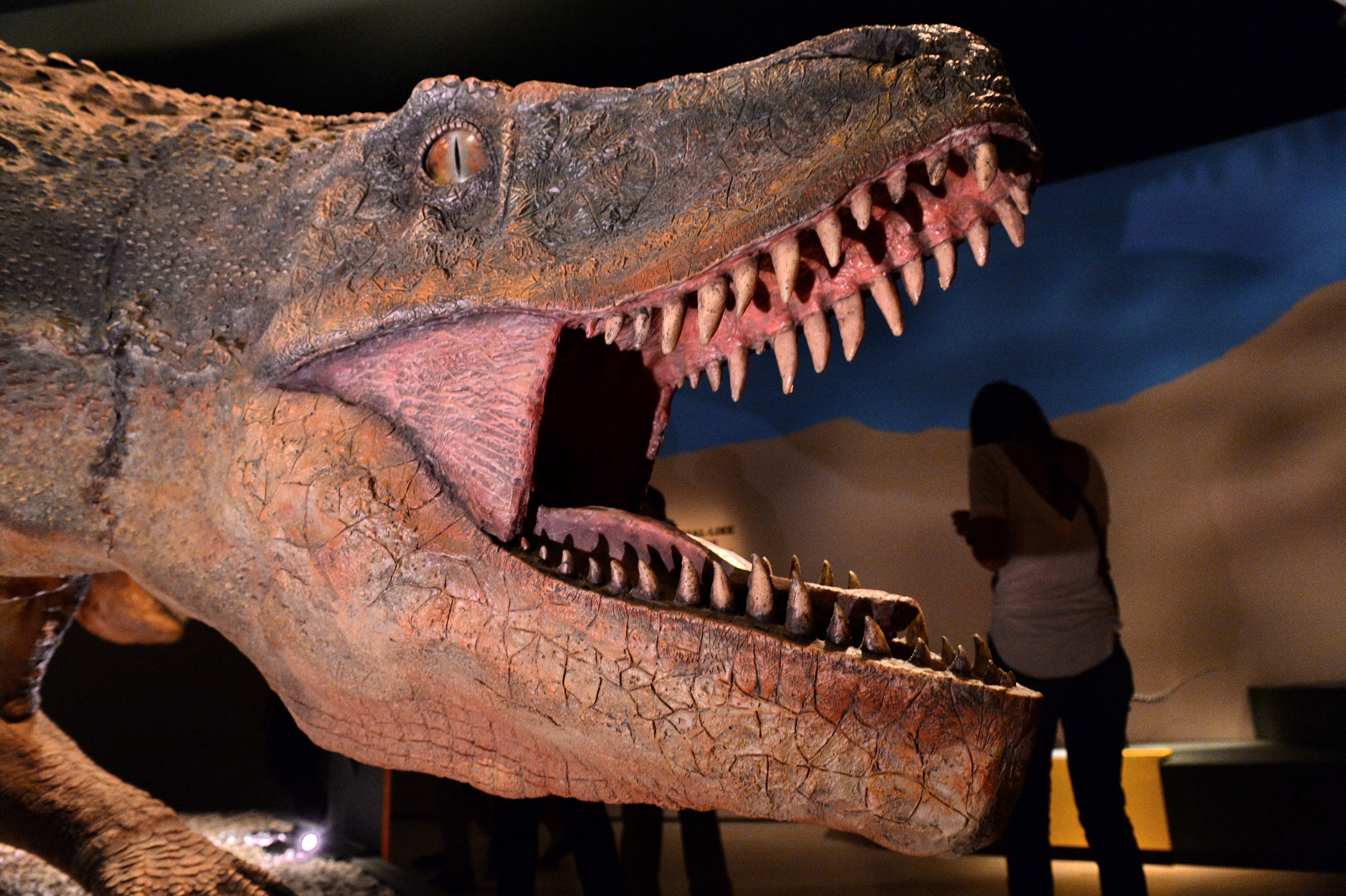Dinosaurs were not in decline at moment asteroid hit and wiped them out, study shows
Monstrous reptiles might have continued to dominate among land animals had the impact of the celestial event not been so great

Your support helps us to tell the story
From reproductive rights to climate change to Big Tech, The Independent is on the ground when the story is developing. Whether it's investigating the financials of Elon Musk's pro-Trump PAC or producing our latest documentary, 'The A Word', which shines a light on the American women fighting for reproductive rights, we know how important it is to parse out the facts from the messaging.
At such a critical moment in US history, we need reporters on the ground. Your donation allows us to keep sending journalists to speak to both sides of the story.
The Independent is trusted by Americans across the entire political spectrum. And unlike many other quality news outlets, we choose not to lock Americans out of our reporting and analysis with paywalls. We believe quality journalism should be available to everyone, paid for by those who can afford it.
Your support makes all the difference.Dinosaurs could have “thrived” on Earth for many more years were it not for the huge asteroid that struck the planet and wiped them out, a new study has found.
Research by the University of Bath and the Natural History Museum claims to shed new light on the extinction of the monstrous reptiles, which has fascinated humans for hundreds of years.
Previous studies have suggested dinosaur populations were already in steep decline around 66 million years ago when the asteroid struck, finishing off any chances of their recovery.
But now researchers say the dinosaurs might have continued to dominate the planet for a lot longer if the extraordinary celestial event had not taken place.
The scientist team collected a set of different dinosaur family trees and used statistical modelling to evaluate if the main dinosaur groups were still able to produce new species in this era.
They concluded that they were, and that the dinosaur could have continued to be the “dominant group of land animals on the planet” and “thriving” if the impact of the asteroid had not been so devastating.
"Previous studies done by others have used various methods to draw the conclusion that dinosaurs would have died out anyway, as they were in decline towards the end of the Cretaceous period,” said Joe Bonsor, first author of the study at the university.
However, if the dataset is expanded to include more recent dinosaur family trees and a broader set of dinosaur types, the results contradict the earlier findings, he adds.
The research says it is difficult to evaluate the diversity of dinosaurs due to gaps in the fossil record.
In the study, the researchers used statistical methods to overcome these sampling biases by examining the rates of evolution among dinosaur families, rather than counting the number of species belonging to the family.
“The main point of our paper is that it isn't as simple as looking at a few trees and making a decision. The large unavoidable biases in the fossil record and lack of data can often show a decline in species, but this may not be a reflection of the reality at the time,” Mr Bonsor said.
Earlier, research by University College London also suggested such a large extinction of species could have only resulted from the impact of a massive asteroid hitting the Earth, after analysing various extinction scenarios.
Scientists believe the massive asteroid that struck the planet 66 million years ago triggered a series of earthquakes, giant tsunamis and volcanic eruptions which eventually led to the extinction of dinosaurs and many other species, in what is now known as Earth’s fifth mass extinction.
Join our commenting forum
Join thought-provoking conversations, follow other Independent readers and see their replies
Comments